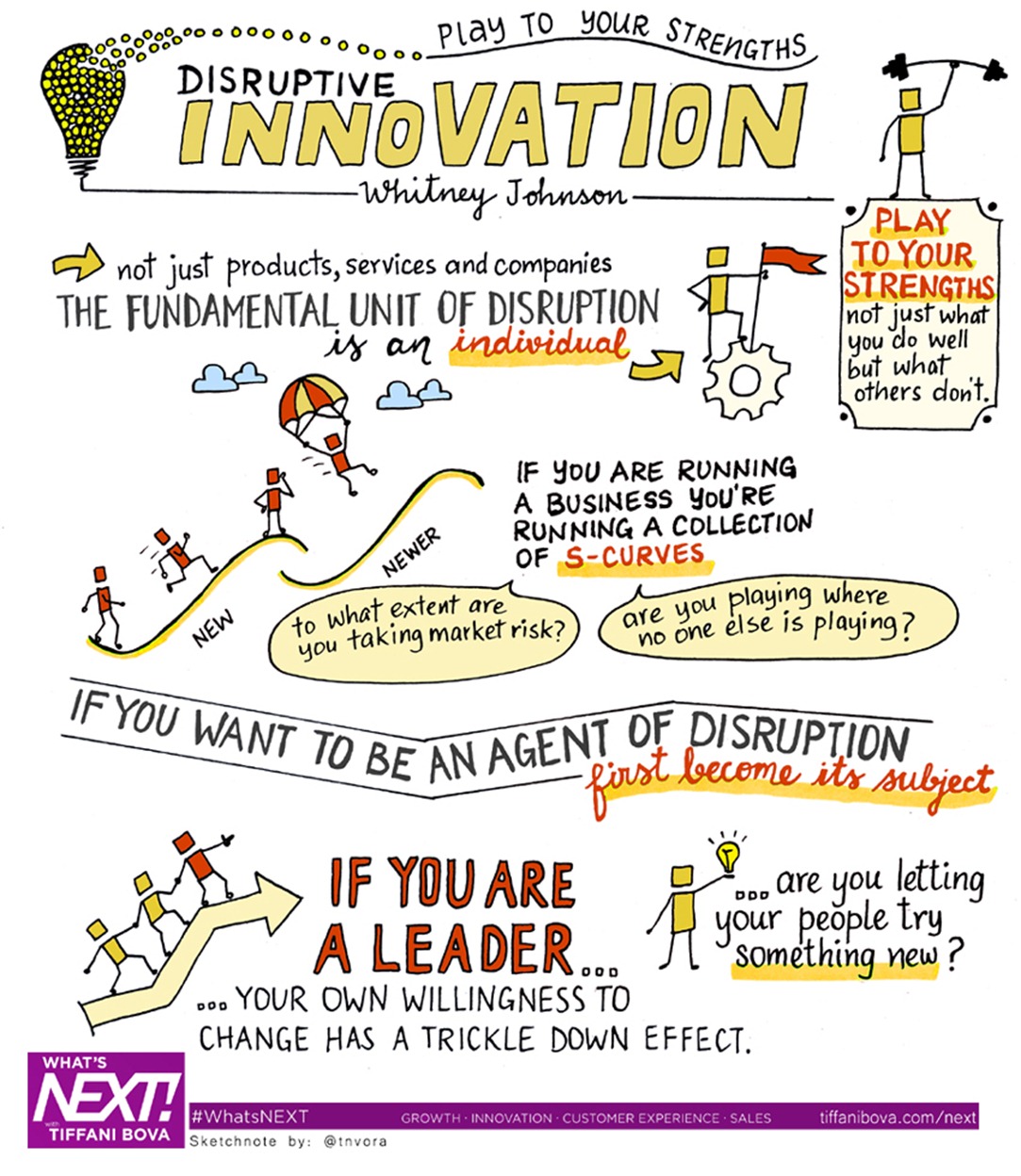On Disrupting Yourself
Tanmay Vora
I created a series of sketch notes for Tiffani Bova’s “What’s Next” podcast where she meets brilliant people to discuss customer experience, growth and innovation. Tiffani Bova is a Global Customer Growth and Innovation Evangelist at Salesforce. I will post sketchnote versions of selected podcast episodes that enlightened me.
During 2001 dot com bubble, one of my friends, a competent software developer, was laid off because of lack of business in the technology he worked in. He was smart enough to understand that the company needed people in a new project that was to be developed on a totally different technology. He learned the new technology, re-skilled himself fast enough to face a client interview for the new project and was retained even before his notice period got over.
In my formative years, he stood as an example of someone who totally disrupted himself when he was forced by external circumstances. Obviously, today’s complex and fast changing world demands individuals to disrupt themselves based on internal drivers of change, before external circumstances compel them to change.
In a business context, there are many organizations like 3M, Apple, NetFlix and Google whose success can be attributed to their ability to disrupt themselves continuously.
In this episode of What’s Next podcast, one of my favorite authors and thinkers Whitney Johnson says,
“Not just products, services and companies, the fundamental unit of disruption is an individual.”
Individuals disrupt themselves when they take some risk, do things that they have never done before, learn constantly, connect the dots and think about intersections between current reality (what they have done so far) and possibilities (what they could do with all innovations around them).
One of her key advices in the podcast is:
“Play to your strengths, not just what you do well but what others don’t.”
The insights in this podcast are very relevant to individuals and businesses alike.
Here is a high-level sketch note summary of this excellent conversation, which I encourage you to check out.
Related Posts at QAspire
